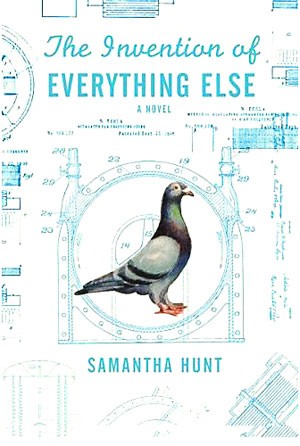Samantha Hunt’s new novel, “”The Invention of Everything Else,”” is an interesting mixture of history and fantasy. It is a fictional biography of the last few months of the life of Nikola Tesla, the man who discovered alternating-current electricity, but who was largely overshadowed by Thomas Edison.
Edison, though, appears rather bland in comparison to the creative and imaginative genius of Tesla.
Tesla is presented as an artist in his field, someone who explores the boundaries between the spirit and reality, intuition and scientific knowledge. His ideas play almost as much of a part in the novel as the plot does, which gives “”The Invention of Everything Else”” more depth than your average paperback. The story at the heart of the novel, though, is rather ordinary. Nikola Tesla has cut himself off from the world in his New York hotel room, alone but for his thoughts and the homing pigeons he uses to study intuition.
“”The Invention
of Everything Else””
Samantha Hunt – Houghton Mifflin
List price $20
www.randomhouse.com
3 1/2 stars
When he meets the intelligent and also pigeon-crazy chambermaid, Louisa, the two of them begin to develop into intellectual friends. The relationship is sweet but rather contrived, the weakest layer of an otherwise thought-provoking book. Now, enter the theme of time travel.
Louisa’s father is obsessed with the idea of building a time machine so that he can return to a time before his wife died, an idea that also intrigues Tesla. Louisa too is tied up in the time-traveling action, as her mysterious admirer, Arthur, drops hints about his own links to a time in the future. An interesting idea, which successfully draws the characters together in the plot, but if you are not already a fan of time travel in fiction, this book will not convert you.
“”The Invention of Everything Else”” is, at heart, an ordinary story of unlikely friendship and nostalgia, jazzed up a bit by scientific ponderings and pigeons.









